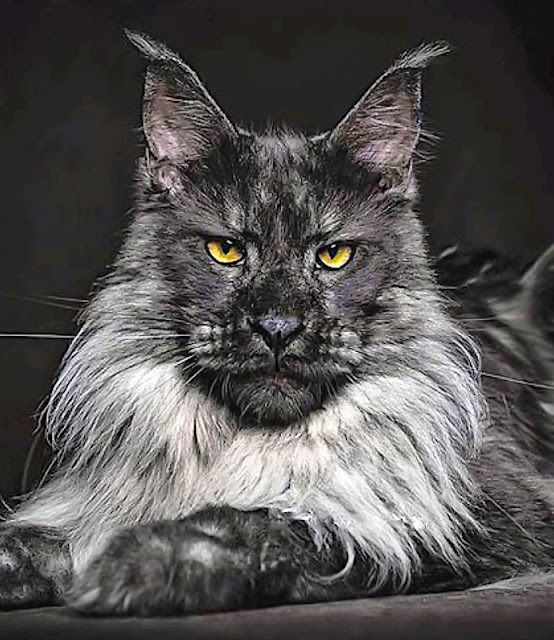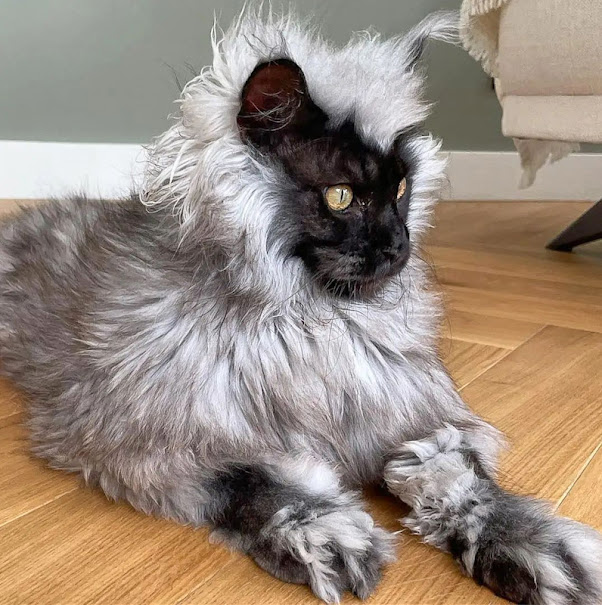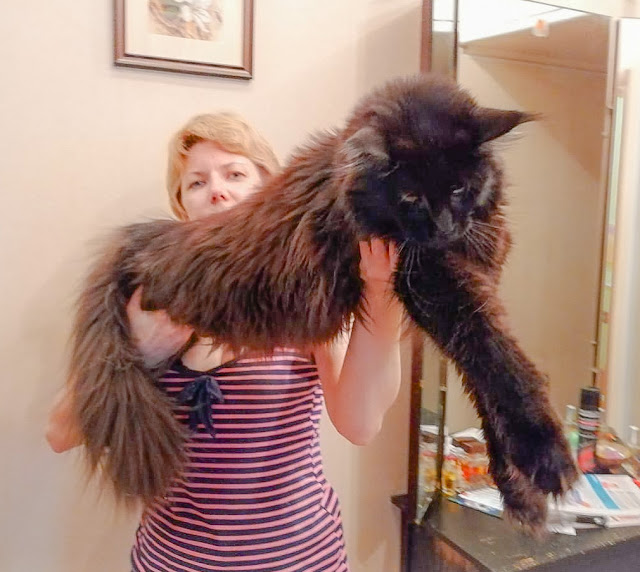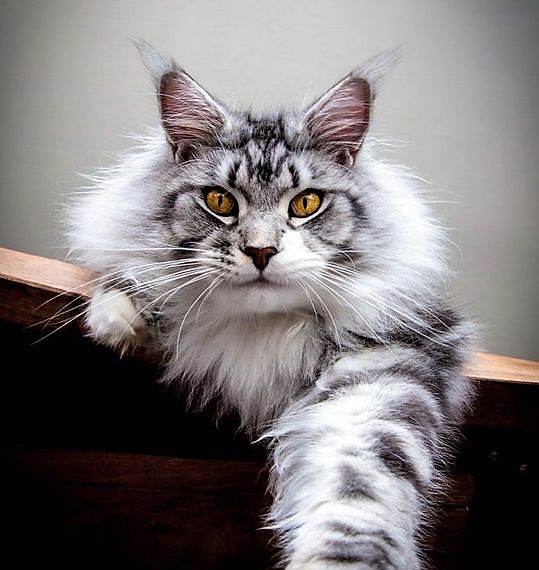Do all Maine Coons have extra toes?
The question in the title is asking whether all Maine Coons are polydactyl. The answer is a definitive No. Some Maine Coons are polydactyl and some are not. I suppose the big question is what percentage of Maine Coon cats are polydactyl i.e. have more than the normal number of toes?
 |
| Polydactyl Maine Coon. Photo: Pinterest |
You will find on the Internet that the figure of 40% is constantly reproduced and republished because one person is following another and the starting point in that process is the figure of 40%. That figure appears to come from earlier authors writing in books. Going back to the 1970s and perhaps earlier, some authors estimated that the percentage of polydactyls in the Maine Coon breed was originally as high as 40%.
The reason why the word "originally" is used because there came a time within the cat fancy, and I'm referring primarily to the Cat Fanciers' Association, when they decided Maine Coons with extra toes were unwanted at cat shows. They couldn't win cat shows if they had extra toes and as I recall they were disqualified. I guess, therefore, that cat breeders who were affiliated to the Cat Fanciers' Association changed their selective breeding practices to ensure that there are no polydactyl cats within their breeding lines.
RELATED: Polydactyl Cat Record Holders.
This resulted in a reduction in the percentage of polydactyls within the breed. So I'll have to guess what the percentage there is today. I would guess that it is somewhere near 10% of today's Maine Coons are polydactyl. That is a wild guess but it will be a figure which is relatively low. Notwithstanding this lowish percentage, the Maine Coon is famous for having extra toes on their feet. This primarily occurs at the front.
Beth Hicks, considered one of the foremost experts of the breeds stated:
"I don't know if you are familiar with it but there was a study done by someone connected with a university in the 1950s which showed that 40% of the Maines were polydactyls. Now, this was before they came back on the show circuit."
She was communicating with Susan Grindell MSc, who I believe was a Maine Coon breeder. Susan wrote that "it appears that this trait is being bred out of the Maine Coon simply to fit in with the dictates of the show world".
She believes that early literature about the breed indicated that polydactyl cats were always intended to be accepted for showing and they were never viewed as being deformed or that the mutation was detrimental. Note: it is a safe mutation not carrying any detrimental associated health problems or rarely so.
As I recall, a competing cat association The International Cat Association (TICA) accepts polydactyl Maine Coons under a fresh heading. In other words there will be a Maine Coon polydactyl breed standard.
To conclude, therefore, not all Maine Coons are polydactyl but a good percentage were and even today a reasonable percentage are polydactyl. And historically this breed is known for their polydactylism. No other breed has that reputation.
Genetic mutation
It is believed that polydactylism (the more accurate word is 'polydactyly') is caused by a spontaneous genetic mutation. We should also remind ourselves that it occurs in humans as well. In fact most of the research available online concerns people. And because it is due to a genetic mutation it is going to be inherited. That's why I mentioned breeding lines above. If within a cat breeder's breeding line there is a polydactyl Maine Coon then you're going to see this mutation pop-up over generations.
Grindell writes: "The polydactyl gene in the Maine Coon breed is the standard benign autosomal dominant gene for polydactyly, Pd. This gene has been identified following the sequencing of the cat genome."
Apparently, in humans polydactyly is the most common type of congenital hand deformities. Wikipedia says that polydactyly is associated with different mutations. They state that in the case of Hemingway cats i.e. the cats at Hemingway's home at Florida keys, some of which were Maine Coons, the mutation is a "cis-acting mutation approximately 1Mb upstream of SHH gene has been implicated".
That does not mean anything to me but it might mean something to you 😢.










Comments
Post a Comment
Please share your Maine Coon experiences.